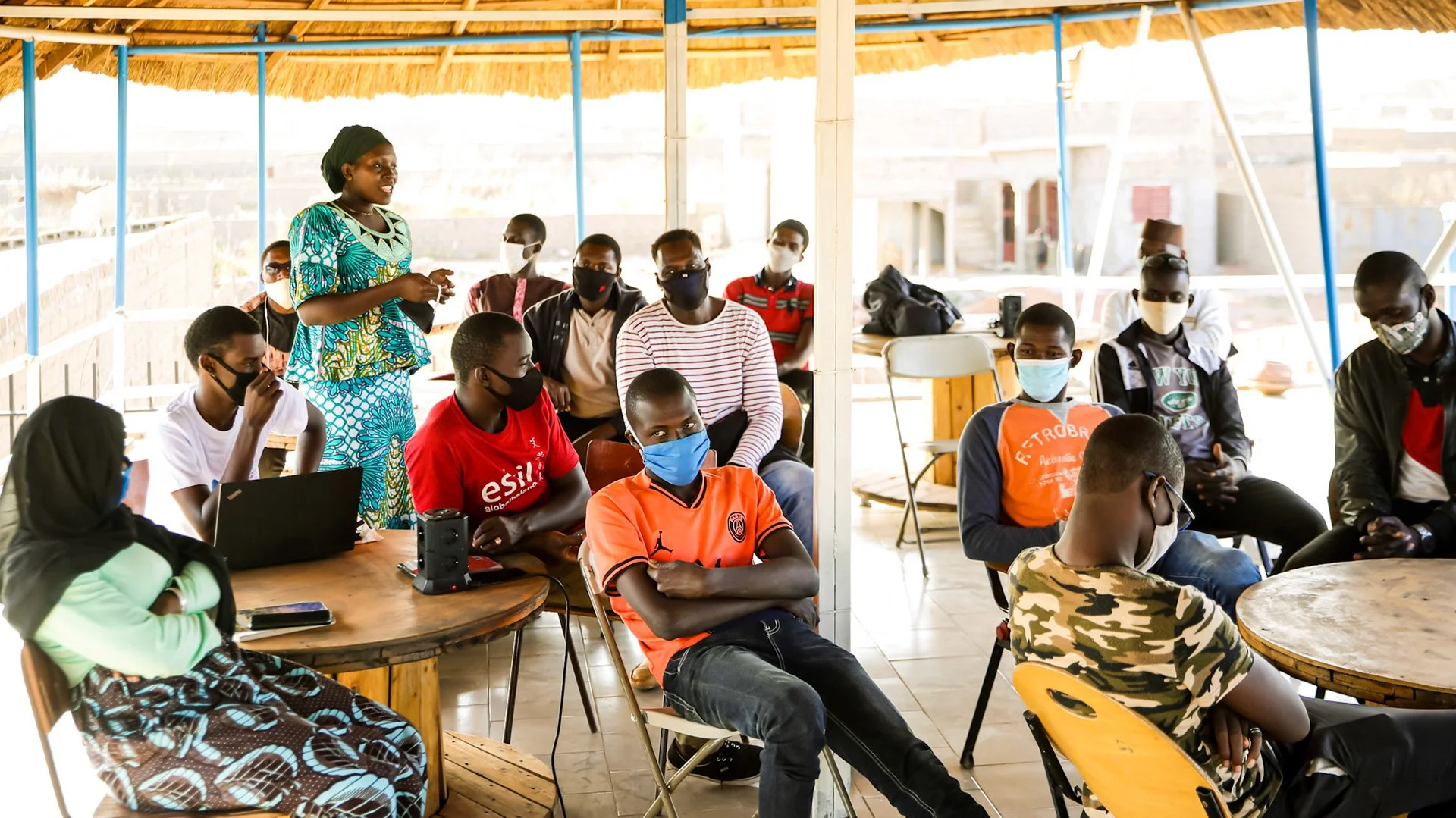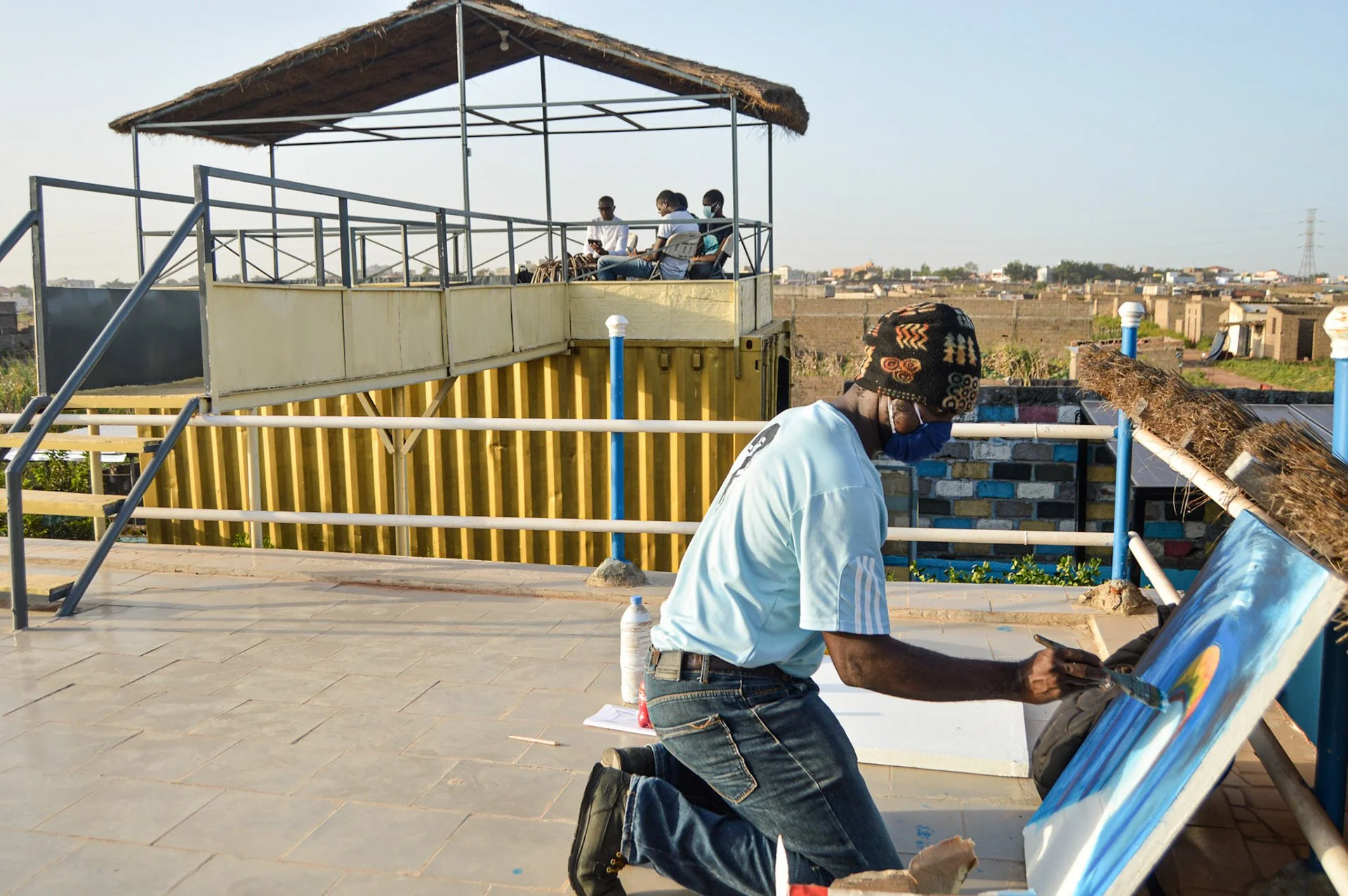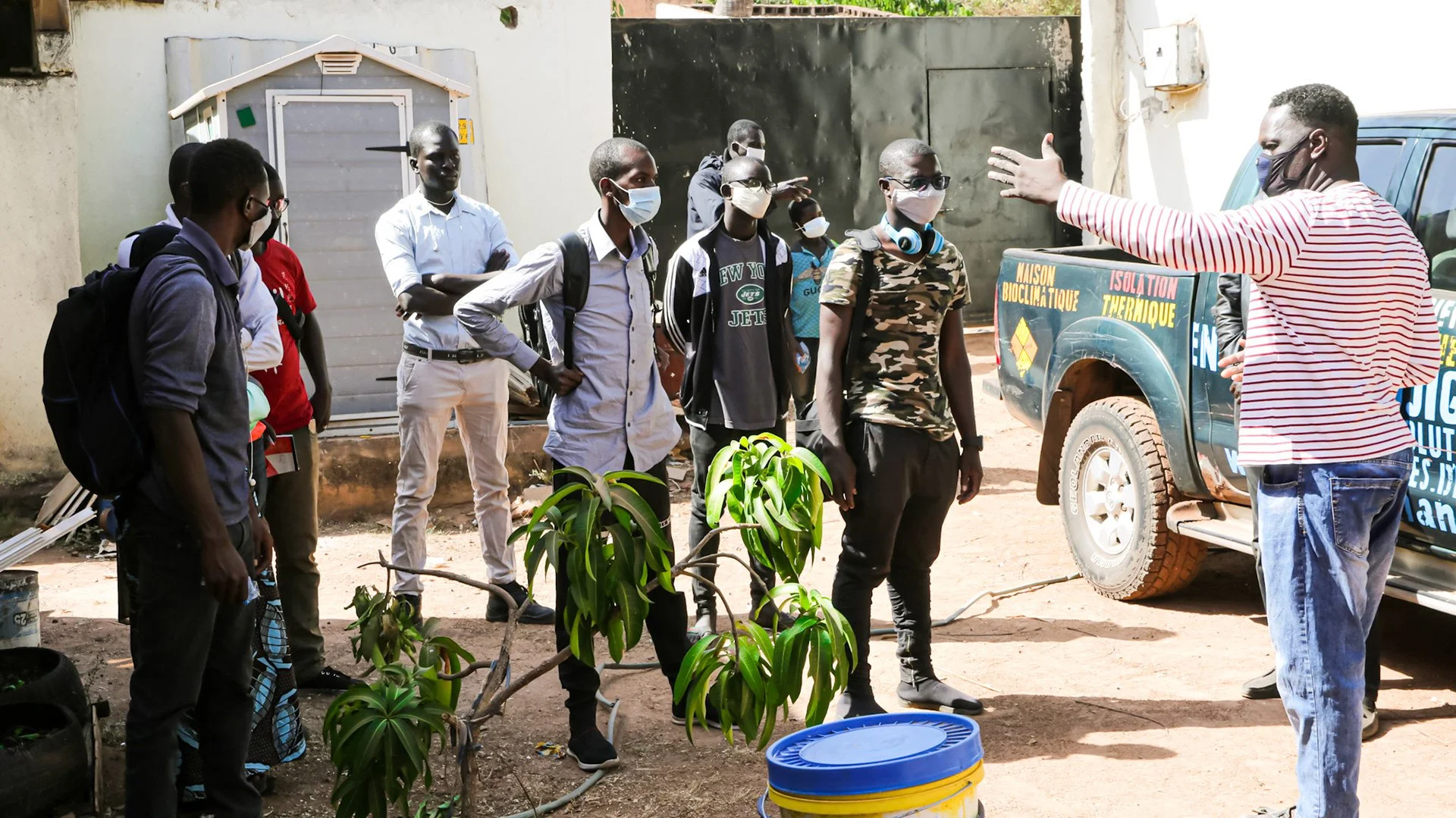Lea Buck | Managing Director
Interview given to Ms Maria Louisa Vafiadaki
-Kindly introduce Azurit and its founding purpose. What was the underlying problem that you wanted to address and what is your key vision ?
When we founded Azurit Foundation in 2021, our motivation was clear: we believe in justice, human rights and in taking responsibility within a global, interconnected world.
At first, we didn’t have a predefined focus of how to turn that motivation into concrete action. We wanted to be open-minded and develop a strong approach and not simply do “what feels right”. So, we looked at three principles: neglectedness, relevance, and the availability of solutions. We also considered our role- we’re not a large-scale funder, but we are highly flexible.
We believe philanthropy is most legitimate when it takes risks, supports relevant causes, reaches geographies and communities with limited access to funding, and backs solutions that are truly effective - not just in theory.
Therefore, the key problem we’re addressing is: opportunities in life shouldn’t be determined by the randomness of where someone is born.
That’s why we focus on funding locally-led organizations in African countries. Very few German foundations fund internationally. And when they do, the money often goes to German, international, or expat-led organizations. But we don’t believe that outside solutions without local ownership are likely to work. Especially, early-stage organisations without a track-record are perceived as too risky.
But how can we change that dynamic if no one is willing to fund them ? So the real question for us is: how can we shift funding to local champions in a way that’s changing this dynamic and effective?
-In what ways does Azurit stand out from other foundations ? How is it different ?
We are different than other foundations in that we are very strict about localization. 100% of our portfolio is comprised of locally-led organizations. Very little funding reaches these organizations directly. They might get funding as implementers, but not for developing their own solutions.
We are willing to take risks and fund very early-stage. For some of our partners, we were their first funder.
In addition, we have an unusual combination in our strategic approach. On the one hand we put strong emphasis on evidence while at the same time, we work with trust-based philanthropy. Many might think this combination is incompatible, that you are either rigid numbers-based or trust-based. Yet, we combine both.
-What do you mean by “Evidence Based Philanthropy” which is your key operating model ?
We are looking for organizations and solutions that are very intentional. Evidence based philanthropy is based on research and empirical evidence. It is when we have information on conceptual backgrounds, on what has worked, what has not worked and how something could work, even if it is not currently working.
For instance, there is an organization in Uganda – Okere City - that works with the “integrated rural development” model. This concept goes back to the 70s and hasn’t always been very effective. Okere City analyzed this model very thoroughly, especially how to truly localize it. They give it a new twist – addressing shortcomings of the past. They also added interesting conceptual levels to it, for instance the idea of rural futurism.
Secondly, we expect some mechanisms within the organization to check on their assumptions, and how to validate or falsify them accordingly. There should be data collection, research, taking into account local qualitative factors to be able to constantly improve and optimize.
An example is Kabakoo Academies, an organization that we support in Mali. Their “highdigenous” approach combines high-tech and indigenous knowledge to create skills that truly matter. They have a blended approach and combine online and in person trainings. They assumed their offer would be most relevant for learners who have a higher level of education, yet still don’t find decent work.
Surprisingly, their numbers showed higher success rates for learners with lower education. This helped them to refine their services and selection process, i.e. not to weighting formal education too highly.
-What type of projects do you mostly engage in and where do you offer funding geographically ?
The main field where we are active is Knowledge. Most of the organizations we support are in are in the field of Education. Education is a requirement for almost everything. It’s difficult to achieve change if people don’t have opportunities to develop relevant skills and participate effectively in societal and economic spheres. Education can also help to build agency and relevant soft skills.
At Azurit, we have a very detailed selection process where we source through local experts. Through our long selection process, we really get to know our partners and their motivation. Once they become officially our partners, we fund as flexible as possible. Our partners need to be able to adapt and they are a in better decision to understand the contexts they operate in than we are. They are the experts.
Our funding goes to African low-income countries. Out of 24 low-income countries in Africa, we have funded in 9 so far; Uganda, Rwanda and Malawi mostly. We select countries based on financial criteria and the people we work with for the selection process are experts: academics, other funders, more established social entrepreneurs, who nominate organizations.
-One could ask why do you invest solely in the African continent and why do you focus on women specifically ?
We focus on the African continent because we look at both challenges and solutions. Challenges are unfortunately manifold, and we see education as an underlying cause and lever for change.
In terms of opportunity Africa tends to be overlooked. It’s a young and growing continent, geographically close to Europe, yet too often forgotten or seen through the lens of outdated stereotypes. We see immense potential in terms of changemakers, ideas, and solutions. Many African countries have a unique opportunity: to avoid the mistakes other regions have made, especially in building unsustainable economic models. We see in Europe how difficult it is to change the path, so maybe try to find a smarter one.
As for women – it comes down to representation. I’m not sure if women are necessarily better leaders (maybe they are?), but I’m absolutely sure they’re not worse. So as long as they’re underrepresented, it makes sense to focus on them. Gender inequality holds back positive change on many levels. And I think women should play a critical role in changing that.
-Please talk about a worth noting case study.
.We work with Asembo Skills for Hope in Kenya. It’s a really small organization that trains women who haven’t finished school and don’t have an income. They started with tailoring, and now they’ve moved into construction.
From the outside, it might seem like a typical skills program. But if you look closer, they’re really flipping norms, challenging gender dynamics and breaking generational poverty cycles. It’s not a light-touch intervention; their support spans several years. And it’s not just about boosting income. It’s deeply intentional about well-being and agency. It is about social & psychological support, decision making powers, leadership, family.
And they have super strong systems in place to understand what is working and what is not. So, they don’t just talk about some nice impact objectives but follow through. They understand details of their interventions that organizations 20x larger don’t – because they’ve built it in from the very beginning.
-How difficult is it to monitor and measure the impact of your work, given that it also entails qualitative factors ?
We are looking at the growth of each organization, how many are women led, how many are locally led etc. We are also looking at how the organizations develop in terms of becoming more professional, and what they achieve for the people they serve and the systemic impact created by it. These are the qualitative factors.
Since we do a thorough analysis beforehand, we know that all our partners already have their own systems in place to measure their organizational work. We’ve deliberately chosen not to pre-define KPIs.
Our partners work according to their own KPIs which are aligned and specific to their situation. These can be both qualitative and quantitative. Measuring impact is demanding and time-consuming, it should only be done if it adds value for the organization itself, and not just to satisfy external reporting requirements.
That means we can’t aggregate data on a portfolio level. But that’s a trade-off we accept. Forcing our partners to report against pre-set KPIs just so we could show some tidy, comparable numbers wouldn’t justify the additional burden it would place on them.
-Could you share one of your success stories.
In 2022, we were the first funder of the Drones Doing Good Alliance. We gave them a seed grant of 25k. Their aim is to unlock the full potential of drones and complementary technologies to achieve the SDGs, by localizing drones manufacturing,
Two years later, they work on drones’ regulation with 9 African countries; have an open-source long range drone that is more effective and affordable than comparable models; collect data on income effects, job creation, value to clients, cost of local production vs. imported solutions as well as the impact on women-owned businesses. Between 2022 and 2023 they’ve grown by 16x and are on track to reach an annual budget of 1M in 2025.
-Kindly mention some key challenges in your work.
There is a lot of perceived risk when it comes to the African continent. The fact that most of the funding goes to non-African organization doesn’t make sense. It reinforces the idea that people from abroad are better equipped to solve problems than local actors who actually understand the context.
This dynamic makes it really hard for our partners to access funding, especially now with widespread aid cuts, not just from the US. We work with incredibly strong, highly qualified founders, but without substantial funding, it’s extremely difficult to build and retain high-quality teams.
And on top of that, they’re operating in tough macroeconomic conditions: hyperinflation, the harsh effects of climate change, and often a complete lack of safety nets to buffer these shocks.
Thank you.






